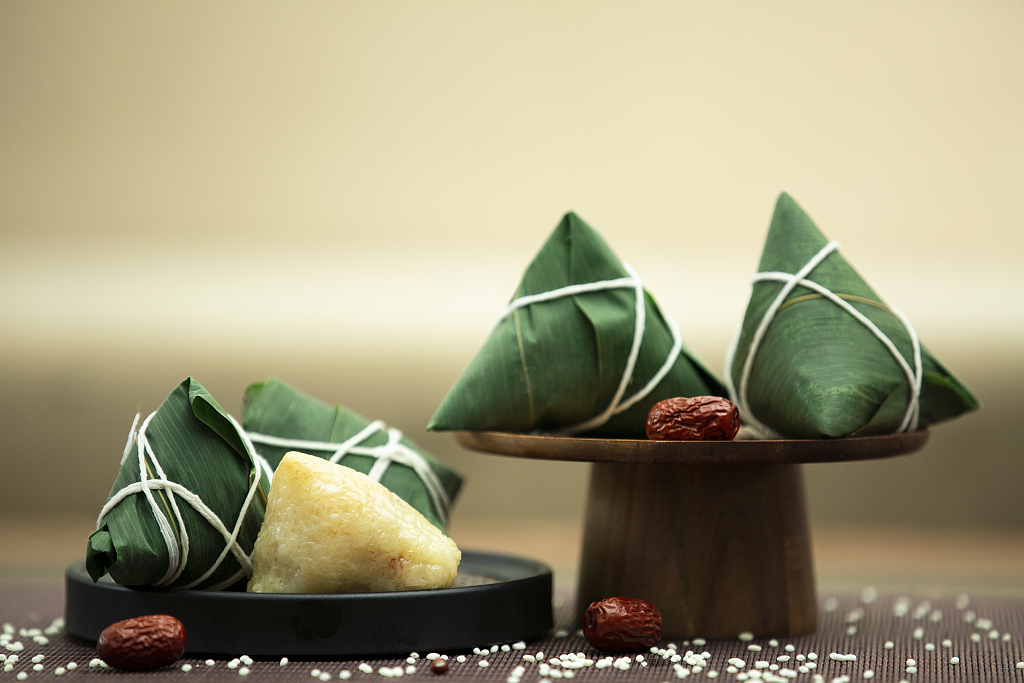Zongzi, a kind of traditional sticky rice dumpling, became a specialty during China's Duanwu Festival, or Dragon Boat Festival, over 1,600 years ago.

Zongzi, a kind of traditional sticky rice dumpling, is a festive food eaten during China's Duanwu Festival, or Dragon Boat Festival. /CFP
Zongzi, a kind of traditional sticky rice dumpling, is a festive food eaten during China's Duanwu Festival, or Dragon Boat Festival. /CFP
According to Luo Shuwei, a researcher at the Tianjin Academy of Social Sciences, zongzi were first called "tongzong," which literally means "zongzi in a bamboo tube." It's a kind of seasonal food from ancient times which marks the start of summer.
In ancient China's Spring and Autumn Period (770-476 BC), people used the leaves of wild rice to wrap glutinous rice into an ox-horn shape, thus giving it the name "jiaoshu," or "horn-shaped millet dumplings." At that time, jiaoshu were used as sacrifices to pay tribute to the ancestors and gods in the hope of a good harvest.
In memory of Qu Yuan, a patriot during the Warring States Period (475-221 BC) who was believed to have died on the day that Duanwu Festival falls on, zongzi have always been connected with the festival. But historical records indicate that the sticky rice dumplings were not officially recognized as a Duanwu Festival food until the Jin Dynasty (265-420).
As time goes by, people have developed a variety of zongzi. Luo believes that zongzi have become a significant symbol reflecting China's long history of traditional customs and food cultures.